
Review: CH Precision P10 reference-class phono preamplifier
Phonostage that makes you believe in the impossible
13.12.2024 15:35 | ~5 minutes read
Testing upper echelon of High End equipment is not an easy task. Equipment of this level demands maximum opportunities from the entire audio system, can bring out the shortcomings of well-known music recordings and spoil further impressions of components of a more modest price range. However, it is equipment of this class that gives us starting points for evaluating the entire range of products presented on the market - it sets standards and establishes reference points for the entire industry. The CH Precision P10 phono preamplifier is one of them - and today we are testing this wonderful device.

Design
So, look at the dual monaural twin-chassis flagship 10 Series CH Precision’s phono design with 2x MC current-sensing inputs and 2x MM/MC voltage-sensing inputs. CH Precision P10 is designed as a two-block scheme with an external power supply weighing 23 kg (the phono preamplifier itself weighs 20 kg). The massive heavy filtered power supply is multi-voltage, switchable to 100V, 115V or 230V AC modes. Maximum consumption from the outlet is 400W, a parameter that many modern amplifiers will envy. The device can be controlled via the CH Control mobile application (supported by Android OS) or via an AMOLED display with a resolution of 800 × 480 pixels and an RGB-palette.

Technology
The heart of the CH Precision P10 is a dual system with the ability to select the method of matching the pickup head, so a pair of inputs (XLR and RCA) for MC cartridges are designed according to the trans-impedance current sensing scheme, two more inputs are suitable for MM / MC (also XLR and RCA) and have a fully discrete voltage sensing scheme. The gain on a single-ended input from + 56 dB to + 77 dB with a 3 dB adjustment step (and + 6 dB on balanced output) and on a current-sensing input from + 41 dB to + 74 dB (similarly, + 6 dB on balanced output) provides unprecedented flexibility of connection with almost any pre-amplifier or integrated amplifier. When working with the MM / MC voltage-sensing inputs, you can also select the input impedance and set the required value within the range from 100 kOhm to 5 Ohm. In case of activation of MC current-sensing input the impedance will be stable on 100 mOhm.

It is also worth noting the noise - equivalent input noise in our case is less than -144/142 dBu at any gain! Stunning - if we were testing a digital-to-analog converter, this value would cause long and prolonged applause, but in the case of a phono preamplifier, the value looks simply incredible. Thus, the CH Precision P10 guarantees playback EQ curve accuracy of 0.1 dB at THD+N < 0.001% on a MM/MC voltage input (gain 50 dB).

Speaking of the EQ curves itself, of course, RIAA is available, as well as optional EMI, Columbia (LP), Decca (London), DGG (Teldec), NARTB (NAB), Capitol/AES and Philips. The Subsonic filter is not forgotten - there is an anti-rumble 2nd order high-pass filter at 7 Hz system, which can be activated on any equalization curve. For the ideal "adjustment" of the device to the system, the absolute phase polarity inversion function can also be useful. And user selectable local/global feedback allows for precise sound adjustment.

Such achievements would, of course, be impossible without the company's development of an all-new circuit topology with three separate gain stages to reduce noise and two-stage passive EQ. The cherry on the cake was the cartridge gain/loading wizard (generates frequency response curves for each cartridge, tonearm cable and load setting), allowing for visual and quick load matching:

Of course, the CH Precision P10 design also features other signature features of the company - anti-vibration aluminum cases, the improved mechanical grounding system employed on the other 10 Series products and the option to upgrade to a four-box P10 True Monaural configuration.

Test system
This top-of-the-line test system ensures perfect component matching and was an excellent option for a detailed study of the operation of the CH Precision P10 phono preamplifier:
Turntable - TechDAS Air Force III Premium S;
Tonearm - Graham Phantom 3 9";
Cartridge - Dynavector DRT-XV1s;
Preamplifier - CH Precision L1;
External power supply - CH Precision X1;
Power amplifier - CH Precision M10 Stereo;
Loudspeakers - Sonus Victor GrandeLuna MarkII.
All components were given a 120-hour break-in period before listening. This system is listed on the Hifiverse website as a reference. Of course, with Dynavector DRT-XV1s cartridge we used the voltage-sensing input.
Listening

The Miles Davis – Sorcerer jazz record makes the capabilities of the phono preamplifier known from the very first chords. Crystal clear, airy, incredibly detailed performance allows us to distinguish every nuance of the recording. The scale and natural size of the instruments guarantee complete immersion in the atmosphere of bygone years, working like a time machine, allowing you to feel the era. Emotions over the edge.

The complex symphonic recording of Berliner Philharmoniker, Sir Simon Rattle, Ludwig van Beethoven – Symphonien 1–9 demonstrates the reference capabilities of the CH Precision P10 in terms of stage construction and holographic sound picture - not a single detail is lost at fortissimo, and the textural richness of the musical canvas is more reminiscent of the listener being transported to the front rows of the conservatory.

Our favorite 1st UK pressing Led Zeppelin I confirms the genre omnivorousness of the device - guitar parts and the feeling of a "wall of sound" perfectly coexist with the elaboration of vocals and microdynamic contrasts, previously simply absent in this path.

Switching to Deep Purple Fireball guarantees the leadership - CH Precision P10 turns out to be a real steel fist in a velvet glove, which can handle any track.
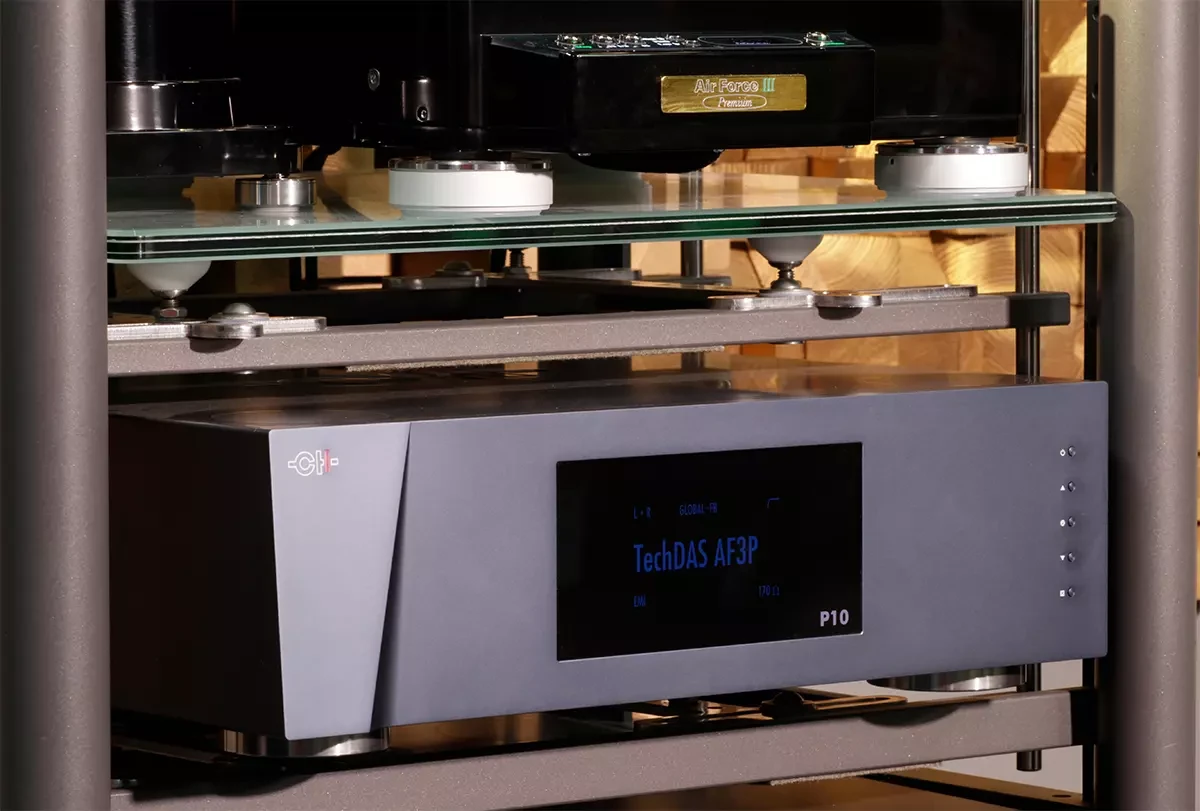
Conclusion
CH Precision P10 is a truly extraordinary product, bringing the sound of a high-quality vinyl path closer to a R2R-system based on master tapes playback. The incredible dynamics and detail that the device offers deserve to include the phono preamplifier in the Golden Pantheon of the best devices on the modern market.

Evaluations
Stage
98%
Detailing
98%
Macrodynamics
95%
Microdynamics
96%
Bass extension
95%
Timbral authenticity
95%
Genre versatility
98%
Overall
97%
Specifications
This product is in the Hi-Fi and High End Electronics and Acoustics database
Phonostages — CH Precision P10
Model name
P10
Inputs (balanced)
2
Inputs (single-ended)
2
MC current-sensing input impedance (Ω)
100
MM/MC voltage input impedance (Ω)
100 - 5
Output impedance (Ω)
N/A
Gain (dB)
N/A
Playback EQ curves accuracy (dB)
0.1
Frequency response low +/- 3dB (Hz)
N/A
Frequency response high +/- 3dB (Hz)
N/A
Total Harmonic Distortion + Noise (%)
0.001
Dimensions (mm)
N/A
Weight (kg)
23 + 20
Official link
Particular qualities
Noise - -144 dB
Total Harmonic Distortion - 0.001%
2x MC current-sensing inputs
2x MM/MC voltage-sensing inputs
More content
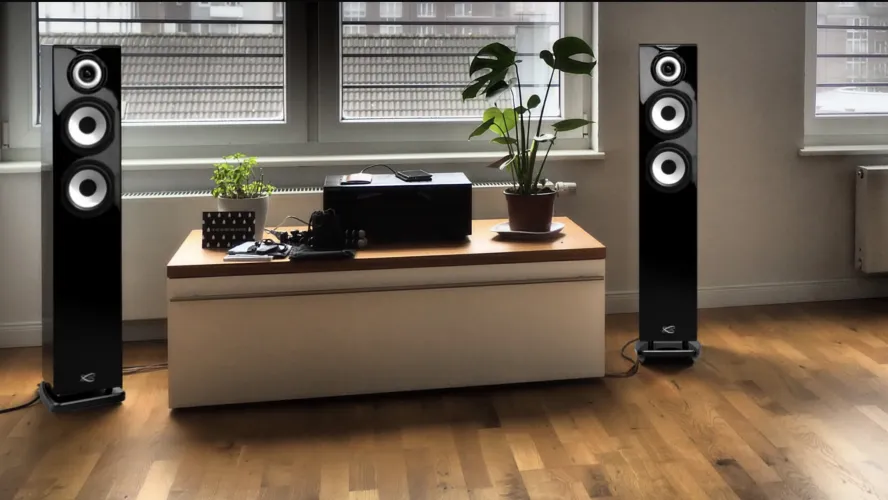
Top 7 Floorstanding Loudspeakers – Summer 2025 Rating
Main New Products on the Market
Choosing new floorstanding loudspeakers is not an easy task, but our new guide will help you navigate the flurry of new products. Acoustic systems with high-class sound have become much more affordable – which makes market research even more interesting.
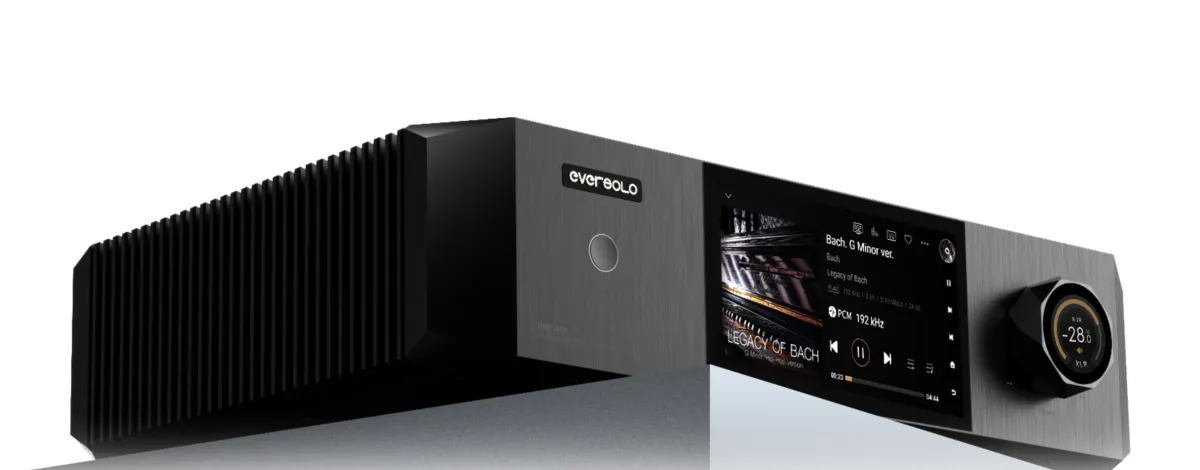
Which Network Player to Choose in the Summer of 2025?
Digital Streaming with Comfort and Quality
Our new buyer's guide and equipment rating is visited by full (with a digital-to-analog converter) streamers or network players. The number of these components is growing day by day, which is why the selection turned out to be interesting - from inexpensive models to High-End class mastodons.
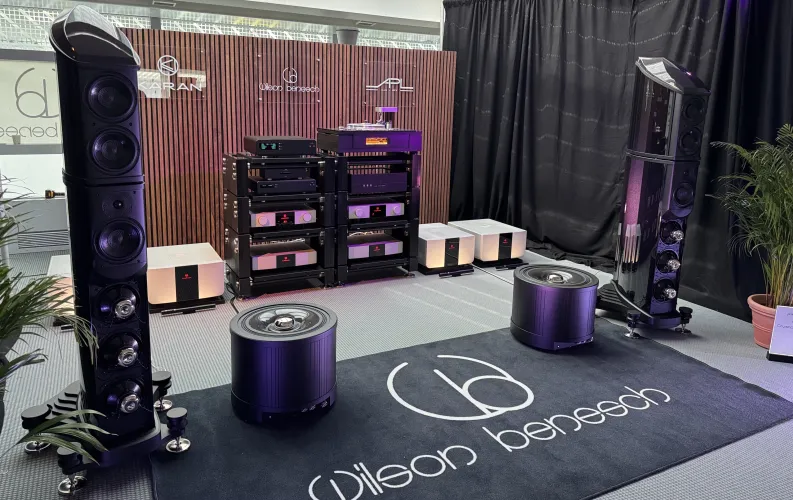
Wilson Benesch Omnium – Ultra High-End Class Acoustics Listening Test
Kings of Dynamics and Rhythm
Extra-class floorstanding acoustic systems, Wilson Benesch Omnium – the culmination of 30 years of development experience from the famous British company. The model was created in collaboration after long and thorough research work of the SSUCHY project. The second from the top in the company's range, loudspeakers embodied the most advanced, bold and new sound solutions.
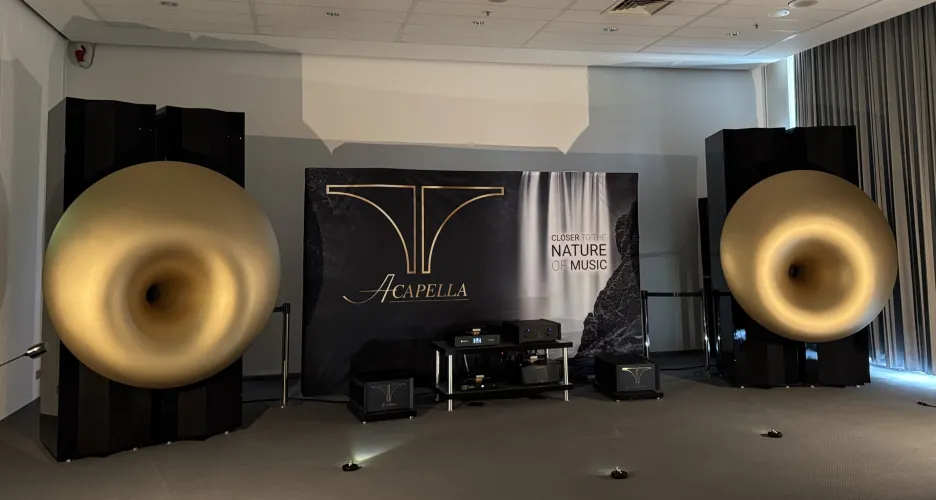
Acapella HYPERSPHERE – the Ultimate Ultra High-End Frontier
Test and listening of loudspeakers for 5 million euros
The culmination of decades of research by the renowned Acapella – the complete system (with electronics) Acapella HYPERSPHERE costs 5 million euros, and the speaker systems themselves can be purchased for “only” 3.2 million euros. Well, let’s study the true pinnacle of uncompromising Ultra High-End design.
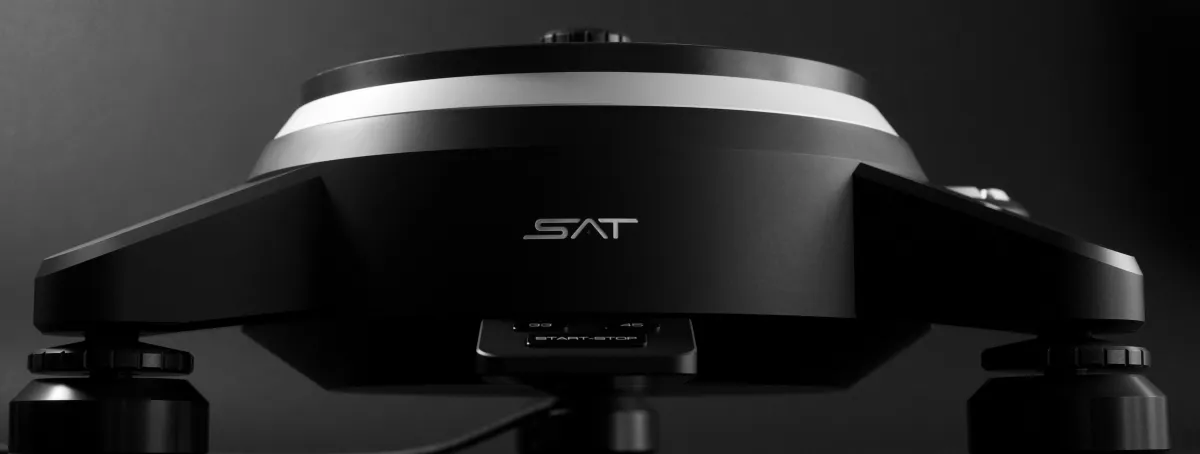
SAT XD1 – Ultra High-End in Vinyl
Listening Test of Reference Turntable from Swedish Analog Technologies
SAT XD1 is a true pearl of the modern horizon of High End audio equipment. Based on completely rethought engineering solutions of the direct-drive Technics SP-10R turntable, the redesigned vinyl turntable from the famous Marc Gomez amazes with both its sound and price. But, such is the price for truly ultimate quality…


